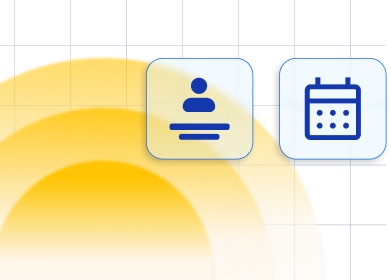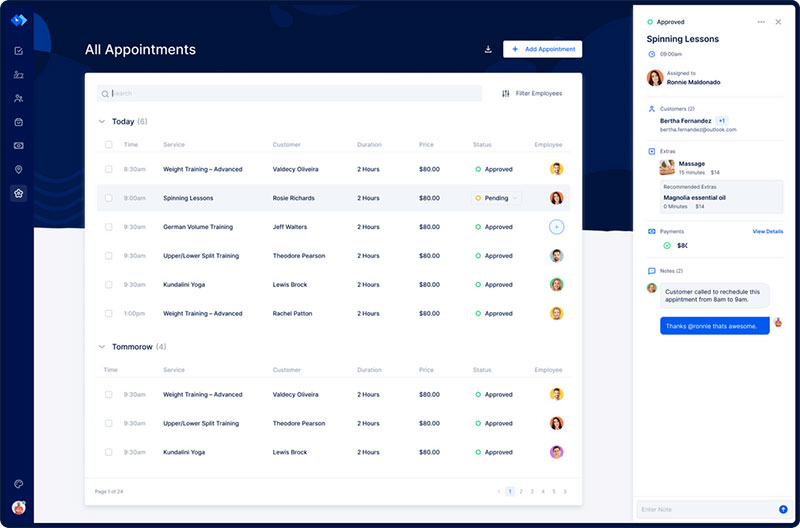A mentoring relationship is hard to build and maintain. Both the mentor and mentee have packed schedules incuding personal projects, work, and self-development paths.
This brings up a question: how to make mentoring work? How to foster efficient mentoring relationships when we have so little time on our hands?
A mentoring agreement helps answer those questions. By providing a solid foundation to the relationship, it can grow to be strong.
You’ll be able to align objectives and manage expectations satisfactorily. A mentoring agreement is a perfect framework to regulate the relationship.
Mentoring Agreement: Definition
Mentoring agreements refer to documents where the mentor and mentee can set up their commitments. These are in effect for the entire period they work together.
An agreement is not a mere piece of paper, it’s the foundation that supports mentoring relationships. Here are some of its advantages:
- Sets clear expectations: These agreements outline the requirements for each party. It must establish expectations and make the parts accountable for their responsibilities. It helps identify those areas where both need additional support.
- Establishes honest communication: Every mentor must specify how the communication will take place. This includes choosing the channels, which must help to achieve a smooth communication flow.
- Sets up deadlines and goals: Establishing the mentee’s goals is Make sure to stipulate objectives and time frames so that you can keep track of the performance. If you want to achieve success, you have to know what it looks like.
A mentoring relationship requires time and dedication to make it work. Both parties will have their own independent schedules they’ll need to balance..
A mentoring agreement can create balance, establish structured meetings, and avoid wasting time.
What to Include in Agreements?

First, you need to establish the basics:
- Schedules
- Planning
- Goals
- Skills
To make the process simpler, you can create a few templates. Include pertinent sections and then fill it with the details. These are some of the essential sections:
The aim of the project
Here, mentees can record their goals. Make sure they write down what they want to achieve. The more specific they are, the better. Objectives must be clear so that they lead to actionable steps.
Choose the steps
Establish the steps that will help your mentees reach their goals. This includes research, collaboration, regular meetings, grants, manuscripts, etc.
Meeting Schedules
It’s important that you establish how often you will meet.
- Weekly
- Monthly
- Twice a month
- Other time frames
Establish the duration of your sessions. If this should change, make sure you specify why. Here are some possible durations to include in your agreements:
- 30-minute session
- 45-minute session
- 1-hour session
- Other durations
Then, choose how you want to conduct these meetings. Here are some options for your mentoring agreement:
- In-person meetings
- Video conferences
- Phone calls
- Others
Communication
Each party expects different frequencies, content, and communication methods. For example, establish what would happen if either the mentor or the mentee cancels a session. What happens if one party doesn’t reply to an email?
Skills to develop
Each mentee has specific skills they want to develop. Make sure they know what they want. Do they need to enhance their existing capabilities? Do they need to improve their leadership skills? Encourage them to be as specific as possible.
Develop a plan
Both mentors and mentees must create a plan. Consider the goals and skills your mentee needs to develop. In your plan’s outline, make sure it includes clear actions that the mentee must take within the following days and weeks.
Aspirations
Ask the mentee specific questions: Where do you see yourself in the future? What is the most senior position in your career? What is the highest point that you want to reach?
Confidentiality
If you want to build mentoring relationships based on trust, take confidentiality seriously. Each mentor must commit to keeping sensitive topics confidential and request permission to use any of the information derived from the sessions.
Termination
Make sure you include a termination clause. For example, if the mentoring relationship is damaged beyond repair, the collaboration will cease. Here, neither of the parties will have any further commitment except for the fees or expenses pending. Also, termination can be initiated by any of the parties.
Another possibility is that the mentee finds the relationship to be unproductive. If this is the case, he or she may terminate the contract.
Your mentorship success story starts with a scheduling app to streamline your calendar
Staying organized has never been easier.
You can now manage your business and grow your brand with a single, powerful software that keeps all of your appointments in line, your clients organized and your business booming.
Trafft is perfect for business owners who need to streamline their booking experience both for their staff and their clients.
Trafft handles everything for you, even sending automated email or SMS reminders to your clients. No-shows? Not anymore!
The Trafft booking software adapts to different industries for a blissful online booking experience and employee management.
https://www.youtube.com/watch?v=aGbUg7PVtLk
Want to know more? Check out Trafft’s awesome features to see what you are missing.
Providing feedback
The mentor must prepare evaluation reports regularly. These must include:
- Goals that the mentee established at the beginning of the project.
- Description of the mentoring process and how the mentee responded.
- Description of appraisals and difficulties encountered throughout the process. Include explanations if necessary.
- Explain what changes will enhance the process.
- State how far you estimate the mentee has come since the beginning of the project.
- Include an appraisal of how the agency managed the venture from your perspective.
Likewise, the mentees should provide feedback. Their evaluation reports must include:
- A review of the goals they established at the beginning of the cooperation, including an appraisal of their
- Description of their experiences working with their mentor during this period.
- Highlights and downsides of the projects and explanation if necessary.
- Include anything that they feel they could have done differently to gain more benefits from the experience.
- General statement on how valuable this experience is for them.
- Appraisal of how the agency (if any) managed the venture from their perspective.
To get the most out of the mentoring relationship, it’s a good idea to exchange emails. After each session, make sure that you send emails to each other. Include an evaluation of the session and a proposal to move forward.
Examples of Mentoring Agreements
The following are some examples of agreements that can be useful for you:
- Agreement A.pdf
- Agreement B.pdf
- Sample mentoring agreement. Here, the mentor and mentee sign an agreement to reach a better understanding of leadership practices.
- Mentoring agreement. Mentoring agreements play an important role in relationships. This is the basis to establish mutual expectations right from the beginning.
- Thesis mentoring agreement. With this agreement, both parties agree on the methods of working together.
FAQs about mentoring agreements
1. What is a mentoring agreement, and what purpose does it serve?
A legal document known as a mentoring agreement spells out the objectives, duties, and commitments of both the mentor and the mentee. The agreement acts as a guide for the mentoring relationship, making sure that everyone is aware of their responsibilities.
2. Who typically initiates a mentoring agreement, the mentor or the mentee?
A mentoring arrangement can be started by either the mentor or the mentee, however most of the time the mentee takes the initiative. This is due to the fact that the mentee often stands to earn more from the mentoring relationship and may be more committed to its success.
3. What are some common components of a mentoring agreement?
The aims and objectives of the mentoring relationship, the duties and responsibilities of the mentor and mentee, the frequency and format of meetings, and the expectations for communication and feedback are all commonly covered in a mentoring agreement.
4. How long should a mentoring agreement be in effect?
Depending on the aims and purposes of the mentoring relationship, the length of a mentoring agreement can change. A few months may be the duration of some agreements, while a year or longer may be the duration of others.
5. What are some of the benefits of having a mentoring agreement in place?
There are several advantages to having a formal mentoring agreement in place for both the mentor and the mentee. It can be useful in setting up specific expectations, ensuring that everyone is on the same page, and offering a framework for gauging success.
6. What happens if either the mentor or mentee fails to meet their obligations under the agreement?
It may be essential to modify the parameters of the agreement or even end the mentoring relationship if either the mentor or the mentee fails to fulfill their commitments under the mentoring agreement. This emphasizes how crucial it is to create clear communication lines early on and set reasonable expectations.
7. Is it possible to modify or amend a mentoring agreement once it has been signed?
A mentoring agreement may be changed or amended after it has been signed, but any alterations require consent from both parties. This can entail revising the contract’s provisions or creating an entirely new one.
8. Should a mentoring agreement be a formal, legally binding contract?
Despite the fact that a mentoring agreement is often not a formal, legally binding contract, it is nonetheless crucial to treat it as such. The mentor and mentee may feel more trusting and committed as a result of this.
9. How does a mentoring agreement differ from a coaching agreement?
A mentoring agreement is often more focused on personal and professional growth, whereas a coaching agreement is more focused on skill development and performance improvement, even though there is some overlap between the two.
10. Can a mentoring agreement be used in conjunction with other forms of professional development, such as training programs or job shadowing?
The utilization of a mentoring agreement can be combined with other professional development strategies like training courses or job shadowing.
The agreement can help to guarantee that the mentee gets the most out of these other development opportunities by defining specific goals and objectives for the mentoring relationship.
Final Thoughts on Mentoring Agreement Templates and Examples
A mentoring agreement is an excellent tool. Besides helping you set goals, it establishes clear expectations. Thus, mentors and mentees know what responsibilities and benefits they have.
Agreements help us align interests and specify the shared terms. Providing higher efficiency, these documents help you save time and replace several conversations. Last but not least, signing an agreement will make you look more professional, boosting your career even further.
If you enjoyed reading this article about mentoring agreements, you should read these as well:










